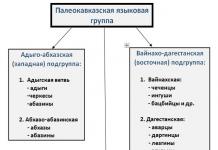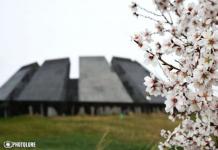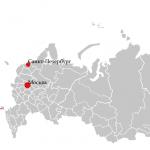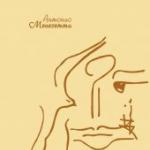Switzerland is respected by Russians as a neutral, civilized country with the highest standard of living, beautiful nature, developed educational system, and low tuition fees. But studying in Switzerland is associated with a number of language difficulties, the specifics of the region, and the difficulty of entering Swiss higher schools.
10 Swiss cantonal (state) universities have no restrictions on the admission of foreigners, except for the level of knowledge. At the University of Geneva, foreign students make up 33%. When choosing a university, you need to take into account the language of instruction (language tests depend on it). The predominant languages are German (Basel, Zurich, Lucerne), French (Geneva, Lausanne, Neuchâtel). In Lugano they study in Italian.
The Academy of Geneva is the main university in the country. Seven faculties, an institute of architecture, teach legal disciplines, economics, medicine, psychology, humanities, and theology. The university has more than 13,000 students. A modest tuition fee (500 CHF per year) and a high level of teaching attract foreigners, of whom up to four thousand study.
In economic disciplines, the University of St. Gallen, which is called a “business academy,” is considered the best. There are four faculties here, five thousand students study, the annual tuition fee is higher - 3126 CHF.
The best technical universities are the higher polytechnic schools of Lausanne and Zurich. Of these, 20 Nobel laureates emerged. Hotel business is taught in private universities. An example of this would be the Hotel Institute Montreux, where two thousand students study in English. The fee in a private higher school is much higher - 14,250 francs per semester.
Restrictions, entrance exams, studies
Restrictions for foreigners in specialties relate to medicine (including dentistry, veterinary medicine, pharmacology, physiology). Specialties are in demand, there are not enough study places for the Swiss, and there is a lot of competition at universities.
Entry requirements in Switzerland are the highest in Europe. School graduates from the CIS are practically not accepted. The minimum requirements are four semesters of a Russian university (with full-time study, excellent grades, good reputation of the state university).
For such applicants, in addition to the usual documents, a copy of the language certificate and an academic certificate (including a list of courses with the number of hours, grades) are required. Even if all conditions are met, an on-site entrance exam is possible.
 There are no additional fees for studying, as well as admission quotas. Problems of overpopulation are solved by holding a special exam after the first year (about half of the students are eliminated). The high cost of living in Switzerland results in similar living expenses, which are unlikely to fall below 16,000 francs (regardless of the region) per year.
There are no additional fees for studying, as well as admission quotas. Problems of overpopulation are solved by holding a special exam after the first year (about half of the students are eliminated). The high cost of living in Switzerland results in similar living expenses, which are unlikely to fall below 16,000 francs (regardless of the region) per year.
Student work is limited (15 weekly hours). You can work after 6 months of study. Hotel service specialties include paid internships at Swiss enterprises (in some schools - six months of study, six months of internship). There are no common curricula; all universities teach according to their own plans.
Work, continuing education
The most promising professions for working in Switzerland are technical, chemistry, and food industry. Excellent academic performance and knowledge of the language provide the opportunity to continue education. Technical schools that combine study with research are promising for doctoral studies.
More than one and a half million foreigners work in Switzerland (up to 20% of the population), and salaries are among the highest in the world. The highest reputation of training in the hotel business allows you to work in hotels, travel agencies, casinos, airlines, and cruise ships in any country.
Russian employers are little aware of the benefits, excluding the hotel business. A Swiss diploma and knowledge of languages will be an advantage for working in foreign missions.
According to research from many reputable agencies, Switzerland's workforce is the most skilled in the world. Largely thanks to this, the country managed to achieve incredible success in the economy and social sphere, moreover, despite a significant shortage of natural resources. Universities in Switzerland are the core for producing top-class specialists.
Higher education in Switzerland is considered one of the highest quality in the world. The country's universities occupy top positions in various rankings, and relatively inexpensive tuition fees attract a huge number of foreign students. A prestigious diploma opens up broad prospects for immigration to Europe for permanent residence, decent employment in Switzerland and the opportunity to open your own Swiss company.
A special feature of the Swiss higher education system is opportunity to study in 4 foreign languages. In addition to English courses, mainly in master's programs, students can choose a university teaching in one of the 3 official languages of the country. For example, in Zurich and Bern you can study at German, in Geneva and Lausanne on French, and in Lugano on Italian.
Thanks to this about a third of students in Switzerland are foreigners representing more than 100 nationalities. The quality of Swiss education is annually confirmed by reputable rating agencies QS World University Rankings And The Times Higher Education.
So, in 2019, according to both publications 7 Swiss universities are included in the TOP-200. In addition, the Swiss Federal Institute of Technology was in 10th and 11th place. Despite the fact that the country's area is relatively small, and the population is just over 8.6 million people.
The Swiss higher education system is represented by the following categories of educational institutions:
- Cantonal universities - 10.
- Federal Institutes of Technology - 2.
- Universities of applied sciences - 8.
- Universities of teacher education - 20.

Most universities are public, with the exception of a few independent pedagogical universities and one university of applied sciences. In addition, a network of private educational institutions, especially business schools, is widely represented in Switzerland. However, many of them do not have government accreditation, and the cost of training is incredibly high.
Study programs in Switzerland are based on the Bologna process, based on a cumulative credit system.
- Bachelor's degree. Duration of training 3 years(180 credits).
- Master's degree. Duration of training 1.5–2 years, after bachelor's degree (90–120).
- Doctoral studies. Duration of training 3–5 years, after master's degree.
The academic year lasts from September to July and is divided into two semesters:
- autumn ( September-February);
- spring ( March-July).
Almost every higher education institution in Switzerland adheres to the rule of providing quality education. Therefore, many universities deliberately reduce the number of disciplines in order to concentrate on specialized areas. All educational programs are available to foreign students, except medical ones. With few exceptions, these places are entirely occupied by the Swiss.
Scholarship programs for foreigners are usually based on interuniversity agreements. Due to the migration crisis in recent years, Switzerland does not actively participate in international student exchange programs, e.g. Erasmus. On the other hand, the government proposes internal scholarships for talented scientists and artists from abroad.
Admission of foreign students to different universities in Switzerland has a similar procedure, but the final decision is made by the individual university. Therefore, for accurate information, it is definitely necessary to contact the official website of the educational institution, where the corresponding application is actually submitted. Additionally, requirements may vary by country. Let us outline the main conditions for foreigners from the CIS countries, including Russians and Ukrainians, when enrolling in a Swiss university.
Requirements for foreign students to enter a university in Switzerland

Age at least 18 years old.
Certificate of complete secondary education. In addition, for example, citizens of Russia or Ukraine must have 2 years of study at a domestic university behind them. This requirement does not apply to the two federal institutions. Here you will need a certificate and passing entrance exams.
Language. Virtually all universities in Switzerland require knowledge of the language ( French, German, Italian) at a level sufficient for study ( B1, B2). This must be confirmed by a certificate or passing special exams. Many universities offer inexpensive language courses in the summer and during the academic year. Master's programs are widely presented in English.
Additional information. A detailed autobiography, a cover letter with areas of study of interest, copies of diplomas and certificates from other higher educational institutions.
The application deadline for the vast majority of Swiss universities is April 30.
Despite the fact that most universities are funded by the state, education in Switzerland is paid. Moreover, an increased rate may be applied to foreign students. However, the cost of studying is still significantly lower, for example, than in the UK. On average, one year of study at a Swiss university will cost from 450 to 4000 euros per semester.

The next expense item is accommodation in Switzerland. According to some reports, major cities such as Zurich and Geneva are among the most expensive in the world.
Help in finding a student room on preferential terms can be provided directly by the university. Otherwise, you will have to look for housing on your own. Renting a one-room apartment begins from 1 thousand euros per month.
For other related expenses, for example, educational materials, food, excursions, medical insurance, and so on, you will have to spend at least 1–1.5 thousand euros per month. Travel on public transport costs 2.5 euros, a movie ticket 15 euros, bread 2 euros, a pack of cigarettes 7 euros.
In total for living in Switzerland, in addition to tuition fees, a foreigner will need about 2 thousand euros per month. Students from countries outside the European Union can start looking for work (no more than 15 hours per week) no earlier than 6 months after the start of the academic year.
Best Universities in Switzerland
The educational institution, located in the large Swiss city of Zurich, was founded in 1855. Today it is one of the most prestigious and sought-after universities not only in Switzerland, but also in the world. This is evidenced by its stable position in the top ten best universities according to various rating agencies.

The university is a real leader in training qualified specialists in technical professions. The reputation of the university is confirmed by 21 Nobel laureates who, in one way or another, were associated with the institute. Among them are such outstanding personalities as Albert Einstein and Wilhelm Conrad Roentgen.
Currently, over 18.6 thousand students are studying at the Swiss Federal Institute of Technology, of which about 35% are foreigners representing more than 110 countries. The training process is provided by 8.5 thousand employees, including 500 professors and over 5 thousand researchers.
Educational programs include such areas as architecture and construction, mathematical, natural and social sciences, and management. Training is conducted in German, but some programs provide for the second and third years of study in English. Submission of documents begins on November 1 and ends on April 30. The cost of study for one semester is 649 Swiss francs (about 575 euros).
Official website of the Swiss Federal Institute of Technology - www.ethz.ch
This is the second federal-level educational institution in Switzerland. The university was founded in 1853. The Lausanne School, although slightly inferior to the more reputable Institute of Technology of Zurich, nevertheless also maintains the top positions in world rankings. For example, according to version QS World University Rankings 2019 The university ranks 22nd.

The university infrastructure includes 5 schools, 2 colleges, 28 institutes and 354 laboratories. About 5,800 university employees provide education to over 10 thousand students representing more than 112 nationalities.
The School of Lausanne offers training in areas such as architecture and civil engineering, computers and communications, natural sciences and humanities, engineering and management.
The main language of instruction is French, but there are also English programs. The deadline for submitting documents is from September to April 30. The cost of studying for one semester is 633 Swiss francs (about 560 euros), including fees for the use of sports facilities and insurance funds.
Official website of the Federal Polytechnic School of Lausanne - www.epfl.ch
University of Geneva (Université de Genève)
The oldest university in Switzerland, founded in 1559, is located in the country's second largest city after Zurich, Geneva. It belongs to the category of cantonal universities and offers a wide range of educational areas. For example, in the field of economics, law, psychology, theology, medicine, pedagogical and social sciences.

About 16 thousand students study at the university. The infrastructure consists of 9 faculties and 15 research centers and institutes. Training is offered mainly in French, with a small proportion of courses in English. For international students requiring a visa, the application deadline is February 28th. Tuition fee is CHF 500 per semester (EUR 445).
Official website of the University of Geneva - www.unige.ch
Switzerland is recognized as the best country in the world and occupies a leading position in livability ratings. This also applies to education. The opportunity to develop comprehensively and reveal individuality is the main principle of the local education system. Another advantage is the lack of an official language: they teach in English, German, French and Italian. A Swiss diploma opens the way to life in the country, in the European Union and America.
Applying to Switzerland is a difficult process. There are 35 higher education institutions (12 classical) and 120 vocational colleges in the country, which enhances competition.
There are three educational programs:
- Bachelor's degree - 3.5–4 years;
- Master's degree - 1–2 years;
- Doctoral studies - 3 years.
Study lasts 4–6 years. Consists of two semesters: summer (October–March) and winter (April–July). Specific dates are specified on the website. Admissions offices open in the spring, and lectures begin in the fall.
The state has the Bologna system. The study is divided into three cycles. In each of them you need to collect a certain number of credits, which are awarded for achievements:
- First cycle - bachelor's degree, 180 ECTS;
- Second cycle - master's degree, 90–120 ECTS;
- The third cycle is doctoral studies, the number of credits is individual.
A student must be at least 18 years old to enroll. Most Russian graduates will have to study for a year in their home country or enroll in preparatory courses.
Upon admission, a foreigner takes five exams in Friborg. In the first and second years, difficult exams are taken, which eliminate up to 50% of students. At the university level, the required number of credits is regulated ( ECTS) for further translation.
A common method of admission from Russia and the CIS is to study at a specialized school. They are cheaper and start immediately after primary school.

Study programs
Higher education is divided into:
- Traditional (classical) - scientifically oriented. These are federal research and technical institutes;
- Pedagogical - preparation for teaching in educational institutions (preschool, schools and higher education);
- Applied sciences and arts - practice-oriented, prepare for work in the profession. These are mainly art institutes, music institutions, etc.
The number of faculties, including those where they teach in foreign languages, is growing every year. A lot of time is devoted to the practical part; after completing a bachelor’s degree, the path to the labor market is open, and a master’s degree provides in-depth knowledge and opens access to work in large companies. Doctoral degrees are awarded to distinguished students.
Each stage has specific features.
- Bachelor's degree - takes 3–4 years (depending on the specialty). Most lectures are required to attend. At the beginning, the applicant chooses a direction and receives a list of subjects;
- Master's degree lasts 1–2 years. A bachelor's degree in the same specialty is required. The choice of most students, opening the way to large companies;
- Doctoral studies (postgraduate studies) - the period is set individually. A master's degree in the same specialty is required. At the end, a scientific dissertation is written and defended.
High school students (children from 15 years of age) and graduates enter professional colleges. This is the choice of most applicants because it is cheaper than preparatory courses and makes it easier to enroll in the institute. The average period is 3–4 years (or less if you pass exams).
Conditions for admission
Requirements for applicants vary depending on the region and university. Sometimes it is necessary to pass entrance exams.
First of all, knowledge of the language in which the lectures will be conducted is required. The level of proficiency is specified by the institute. Twice a year, in June and September, language exams are held in Friborg. There are no deadlines for delivery; you can prepare and learn at preparatory courses. Price - about 4600 €.
Some institutions accept other international certificates:
- English - IELTS and TOEFL;
- French - DALF and DELF;
- German - Goethe Certificate;
- Italian - CELI.
Confirmation of academic level is required. For a bachelor's degree this is a certificate of secondary education (11 grades or 9 grades plus a vocational college), for a master's degree it is a bachelor's diploma (Swiss or domestic). In the German-speaking part of Switzerland, a certificate is not enough; a couple of years of study in your home country are required.
Sometimes, for admission you need a minimum average grade in the certificate (diploma) and passing a specialized exam. The exam takes place in Friborg in early autumn. These are three compulsory subjects - mathematics, history and language (in which lectures are conducted), one specialized and, optionally, another foreign. You can prepare for it in courses that last 8 months (October–June). Conducted in German and French.

List of required documents
For Russians and CIS citizens the following documents are required:
- Application (form filled out on the university website);
- Confirmation of payment of the registration fee;
- Identity card (passport);
- Two color photographs 30x40 mm;
- Notarized copies of academic certificates (diploma, school certificate, other degrees);
- Certificate of passing the language exam (if available);
- List of educational institutions attended by the applicant.
After receiving the invitation, student visa papers are submitted. The average processing time takes 2–6 months, so it is better to apply as early as possible. For the winter semester - in February, and for the summer - in July–August.
Tuition fees
The state is loyal in prices. The cost ranges from 1000–2500 € per year (for foreigners and state citizens).

Varies depending on the level (price per year):
- Bachelor's degree - ~1200€;
- Master's degree - ~1200€;
- Postgraduate studies - ~240€.
In private universities the price is high - up to 30,000€. School fees are about 48,000€ per year.
Is it possible to study for free?
You cannot get an education in Switzerland for free. Public and private institutions are paid for both the Swiss themselves and foreign citizens. You can partially cover the costs with scholarships or grants.
Scholarships and grants for foreigners
The government provides three types of scholarships, the amount of which depends on the specific specialty:
- Research - for students under 35 years of age with a master's degree;
- For doctoral studies - awarded monthly for three years;
- For postdoctoral research - awarded for a year with the possibility of extension up to six months.
The educational institutions themselves issue basic and honorary scholarships. The former receive everything, while the latter are awarded for success and achievement. On average, scholarships are about 1500€ per month. It is better to check the exact figure on the university website.
Master's degree grants are issued annually by the University of Lausanne. Applicants must have excellent academic performance, a bachelor's degree in the same specialty, and be fluent (C1–C2) in German or French. Those admitted under the grant are given a scholarship of 1280 €. Applications are submitted to SASME.
Features of internship and exchange studies
A Russian or CIS student who has completed his first year in his home country can go to Switzerland as an exchange student. To do this, you should apply for participation in the international exchange program or coordinate this issue with the university if it cooperates with the state.
Main requirements:
- Excellent scores in subjects for the last semester;
- Good knowledge of French or German, certificates confirming this.
On a student visa, a foreigner can work a maximum of 15 hours a week, with no restrictions on holidays. The main costs (accommodation, institute) are paid by the exchange program.
Internships take place in the following areas:
- Economics and Finance;
- Tourism;
- Pharmacology;
- Technological specialties and IT (for them, internships are provided by large companies: Microsoft, Google, IBM).
Knowledge of English is desirable.
Living expenses
Despite the cost of government institutions, life itself in the country is expensive.
Most students look for their own housing. A popular option is renting an apartment, a room in a student house or dormitory. The more populated the city, the more expensive housing is. On average it costs 400–800 € per month.

On average, students spend €1,500–2,000 per month on housing, food, insurance, transportation and course materials. You are allowed to work up to 15 hours a week, earning up to 1600 € per month.
However, if a foreigner goes on an exchange, all expenses are covered for him.
Top Universities
The best universities in Switzerland also lead in international rankings. The most popular of them:
- Eidgenössische Technische Hochschule Zürich. Offers unique faculties, ranked in the top ten of the QS world rankings in the fields of engineering and natural sciences;
- École polytechnique federale de Lausanne. The largest number of foreign students and lecturers is ahead of ETH Zurich in materials science. Website: ;
- Universität Zürich. The largest university in the state, programs in various fields; technical, medical and humanities. Website: ;
- Université de Genève. An institution with many profiles, 10 faculties, the most popular direction is philosophy. Website: ;
- Universität Basel. Medicine and humanities, collaborates with research centers. Website: .

Based on the opinion of experts, we can identify cities in which it is better to study this or that direction:
- Economy - St. Gallen;
- Philology - Geneva;
- Jurisprudence - Friborg, Neuchâtel, Lausanne;
- Banking - Zurich, Basil;
- Engineering - Zurich;
- Medicine - Zurich, Basil, Geneva.
The availability and quality of higher education in Switzerland are guaranteed and controlled by the state. Studying at Swiss universities is also available to foreign citizens, although with a number of restrictions. Foreigners are not accepted into medical programs, with rare exceptions.
Higher education institutions that train specialists in hotel and tourism management are very popular - and this is not surprising. After all, for many years Switzerland has been one of the world leaders in such a “capricious” field as tourism and hospitality.
Among UniWestMedia's offerings you will find several higher schools that specialize specifically in training managers of hotels and other hospitality industry enterprises. The programs are designed for both graduates and those who have already received higher education. Teaching is conducted in English.
Swiss higher education institutions and costs
How to enter a Swiss university
Universities accept foreign students starting from the age of 18 and with sufficient knowledge of the language in which teaching will be carried out at the chosen university. The level of language knowledge (not less than B1 or B2) is confirmed by an international certificate. In case of absence, the applicant takes a special language exam. Many universities offer .
In addition, the admissions committee requires:
- Availability of a certificate of secondary education and an academic certificate of completion of 2 courses at a Russian university.
- You need to write your biography.
- Provide a cover letter with your desired areas of study.
- Duplicates of diplomas and certificates from other educational institutions (if available).
- Financial guarantee.
- A statement written according to the sample.
It is better to send the papers before the beginning of May, since correspondence with the admissions committee takes at least 2-3 months, then in case of refusal you will have time to send the package of documents to another university. You also need a residence permit of category B, valid for one year with the right of extension.
A residence permit is a special card with a built-in microchip, which contains a color photo of the owner and fingerprints. The UniWestMedia company will help you with the collection and preparation of the necessary documentation required for departure to Switzerland.
Tuition and living costs
Obtaining higher education in Switzerland is paid for both residents and foreign citizens. However, compared to the same, prices are surprisingly affordable - from 400 - 4100 euros in public universities. At popular private universities it will cost several tens of thousands of euros. Accommodation, excluding tuition fees, costs approximately 2,000 euros per calendar month, half of which will be spent on renting housing if you search on your own.
Sometimes the university can help with accommodation in a student residence on preferential terms. Students from other countries can legally work (fifteen hours a week) only six months after the start of the school year.
However, despite the high prices, obtaining higher education in Switzerland has advantages: the quality of education, the variety of languages studied, and obtaining a prestigious international diploma are a serious argument for employment in a Swiss or other international organization, and open up prospects for immigration to a European country.
Top Universities in Switzerland
The majority of Swiss universities are state-owned, except for a few pedagogical ones. In addition, there are many private higher education institutions, despite the small size of the territory with a population of eight million people. Particularly popular, the cost of training in which is quite high - up to several tens of thousands of euros.
A special feature of obtaining higher education in Switzerland is the opportunity to study in several languages: English, German (Zurich and Bern), Italian (Lugano), French (Geneva and). That is why about 30% of students in the country are foreigners. Training is based on the Bologna system, which includes training in the following programs:
- Bachelor's degree (3 years - 180 cumulative credits),
- Master's degrees (two years - 90-120),
- Doctoral studies (from three to five years).
The academic year begins in September and ends in July. 2 semesters: autumn (September - February) and spring (April - July). In March there is usually a session, after which there is a short vacation.
Among cantonal universities, universities are especially popular:


On this page you can get acquainted with 66 universities in Switzerland, which are located in 21 cities. The cost of obtaining higher education for a Bachelor's program ranges from 0 USD to 24,874 USD, for a Master's program from 0 USD to 20,000 USD. Read a detailed description and reviews of students who studied at universities in Switzerland.
| Name | Country | City | Bachelor (USD) | Master (USD) |
|---|---|---|---|---|
| BFH Berner Fachhochschule | Switzerland | Berne | 1545 | 1545 |
| Business and Hotel Management School | Switzerland | Lucerne | 0 | 0 |
| Business School Geneva International University | Switzerland | Geneva | 0 | 0 |
| Business School Lausanne | Switzerland | Lausanne | 0 | 0 |
| Conservatoire de Lausanne | Switzerland | Lausanne | 0 | 0 |
| Conservatoire et Haute école de Musique de Genève | Switzerland | Geneva | 0 | 0 |
| Ecole de Management et de Communication Genève | Switzerland | Geneva | 0 | 0 |
| Ecole Hoteliere de Lausanne | Switzerland | Lausanne | 0 | 0 |
| Eidgenössisches Hochschulinstitut für Berufsbildung | Switzerland | Zollikofen | 0 | 0 |
| European University | Switzerland | Geneva | 5897 | 0 |
| Fachhochschule Nordwestschweiz | Switzerland | Windisch | 10301 | 10301 |
| Fachhochschule Ostschweiz | Switzerland | Rapperswil | 0 | 0 |
| Glion Institute of Higher Education | Switzerland | Montreux | 0 | 0 |
| Graduate Institute of International Studies Geneva | Switzerland | Geneva | 8240 | 8240 |
| Haute École d"Ingénierie et d"Architecture de Friborg | Switzerland | Friborg | 0 | 0 |
| Switzerland | Lausanne | 0 | 0 | |
| Haute École de Santé du Canton de Friborg | Switzerland | Friborg | 0 | 0 |
| Haute École Fribourgeoise de Travail Social | Switzerland | Friborg | 0 | 0 |
| Haute École Pedagogique Berne-Jura-Neuchatel Basel-Landschaft | Switzerland | Berne | 0 | 0 |
| Haute École Pédagogique Vaudoise Lausanne | Switzerland | Lausanne | 0 | 0 |
| Haute École Specialisée de la Suisse Occidentale | Switzerland | Delemont | 2500 | 2500 |
| Hautes Écoles Specialises Geneve (Haute École de Travail Social) | Switzerland | Geneva | 0 | 0 |
| Hochschule der Kuenste Bern | Switzerland | Berne | 0 | 0 |
| Hochschule für Technik und Wirtschaft Chur | Switzerland | Kur | 0 | 0 |
| Hochschule für Wirtschaft Zürich | Switzerland | Zurich | 0 | 0 |
| Hochschule Luzern | Switzerland | Lucerne | 1648 | 1648 |
| Institut Universitaire Kurt Bosch | Switzerland | Sion | 0 | 0 |
| Interkantonale Hochschule für Heilpädagogik Zürich | Switzerland | Zurich | 0 | 0 |
| International Institute for Management Development | Switzerland | Lausanne | 0 | 0 |
| International Institute of Management in Technology University of Friborg | Switzerland | Friborg | 0 | 0 |
| Kalaidos Fachhochschule (Fachhochschule Private Hochschule Wirtschaft) | Switzerland | Zurich | 7500 | 7500 |
| KS Kaderschulen St Gallen Zürich | Switzerland | Zurich | 0 | 0 |
| Les Roches Gruyère, University of Applied Sciences | Switzerland | Friborg | 0 | 0 |
| Libera Universita degli Studi di Scienze Umane e Tecnologiche | Switzerland | Lugano | 0 | 0 |
| Lorange Institute of Business Zürich | Switzerland | Zurich | 0 | 0 |
| Musik Akademie der Stadt Basel | Switzerland | Basel | 0 | 0 |
| Padagogische Hochschule Bern | Switzerland | Berne | 0 | 0 |
| Padagogische Hochschule Freiburg | Switzerland | Friborg | 0 | 0 |
| Padagogische Hochschule Graubunden | Switzerland | Kur | 0 | 0 |
| Padagogische Hochschule Luzern | Switzerland | Lucerne | 0 | 0 |
| Padagogische Hochschule Schaffhausen | Switzerland | Schaffhausen | 0 | 0 |
| Padagogische Hochschule Thurgau Ticino | Switzerland | Kreuzlingen | 0 | 0 |
The main task of local universities is to produce a ready-made professional who understands innovation and is able to independently analyze information. But the higher education curriculum in Switzerland is not all about couples: it also includes hours for active recreation. In their free time, students can engage in horse riding, mountain climbing and other sports.
In addition, the cost of higher education in Switzerland is one of the most affordable in Europe; this is relevant for both local and Russian applicants. On average, the price starts from 1,000 Swiss francs per year.
Another important advantage for Russian students: almost all universities in Switzerland conduct classes in English, German, Italian and French.
Anyone who decides to get higher education abroad should remember the possible difficulties. Studying at universities in Switzerland places equally high demands on both foreigners, local and Russian students. In addition, each university has the right to conduct its own entrance tests, further increasing competition.
All this is due to the fact that Switzerland is a country with high-tech production, where only first-class specialists are needed. This level of training will allow you to easily find work in leading companies in the world, and the starting salary will be one and a half to two times higher than that of your colleagues.


















